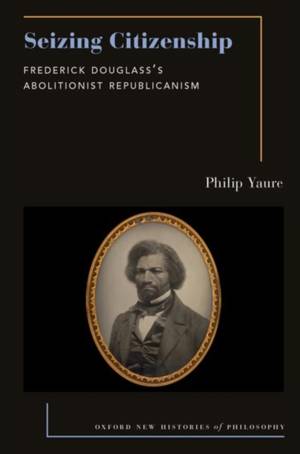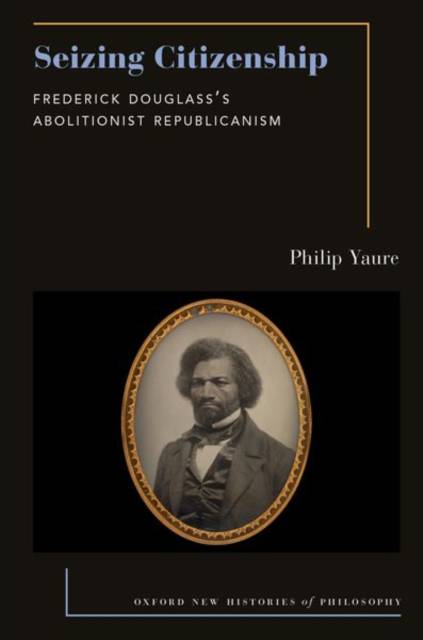
Bedankt voor het vertrouwen het afgelopen jaar! Om jou te bedanken bieden we GRATIS verzending (in België) aan op alles gedurende de hele maand januari.
- Afhalen na 1 uur in een winkel met voorraad
- In januari gratis thuislevering in België
- Ruim aanbod met 7 miljoen producten
Bedankt voor het vertrouwen het afgelopen jaar! Om jou te bedanken bieden we GRATIS verzending (in België) aan op alles gedurende de hele maand januari.
- Afhalen na 1 uur in een winkel met voorraad
- In januari gratis thuislevering in België
- Ruim aanbod met 7 miljoen producten
Zoeken
€ 72,95
+ 145 punten
Omschrijving
In the years leading up to the U.S. Civil War, former slave and abolitionist Frederick Douglass maintained that enslaved Black Americans were already American citizens. Through a systematic analysis of his political writings from the 1840s through the 1890s, Philip Yaure shows that Douglass' declaration of Black Americans' citizenship is the locus of a profound innovation in republican political philosophy. Seizing Citizenship argues that Frederick Douglass reimagined the republican concept of citizenship, on which persons are citizens because they contribute to the polity, to cast the everyday resistance of Black Americans against slavery and white supremacy as activity that constitutes them as American citizens. The resistance of Black Americans forged them into a people with the collective power to remake America's civic ethos in a racially just and inclusive fashion. Douglass advanced an abolitionist republicanism, on which persons seize standing as free citizens of a free polity through the struggle to dismantle the oppressive institutions that dominate and exploit them. Douglass's republican politics strives not to overcome our vulnerability to one another, but instead to deepen such vulnerability on terms conducive to our shared emancipation and collective flourishing.
Specificaties
Betrokkenen
- Auteur(s):
- Uitgeverij:
Inhoud
- Aantal bladzijden:
- 224
- Taal:
- Engels
- Reeks:
Eigenschappen
- Productcode (EAN):
- 9780197776735
- Verschijningsdatum:
- 17/07/2025
- Uitvoering:
- Paperback
- Formaat:
- Trade paperback (VS)
- Afmetingen:
- 158 mm x 235 mm
- Gewicht:
- 340 g

Alleen bij Standaard Boekhandel
+ 145 punten op je klantenkaart van Standaard Boekhandel
Beoordelingen
We publiceren alleen reviews die voldoen aan de voorwaarden voor reviews. Bekijk onze voorwaarden voor reviews.









